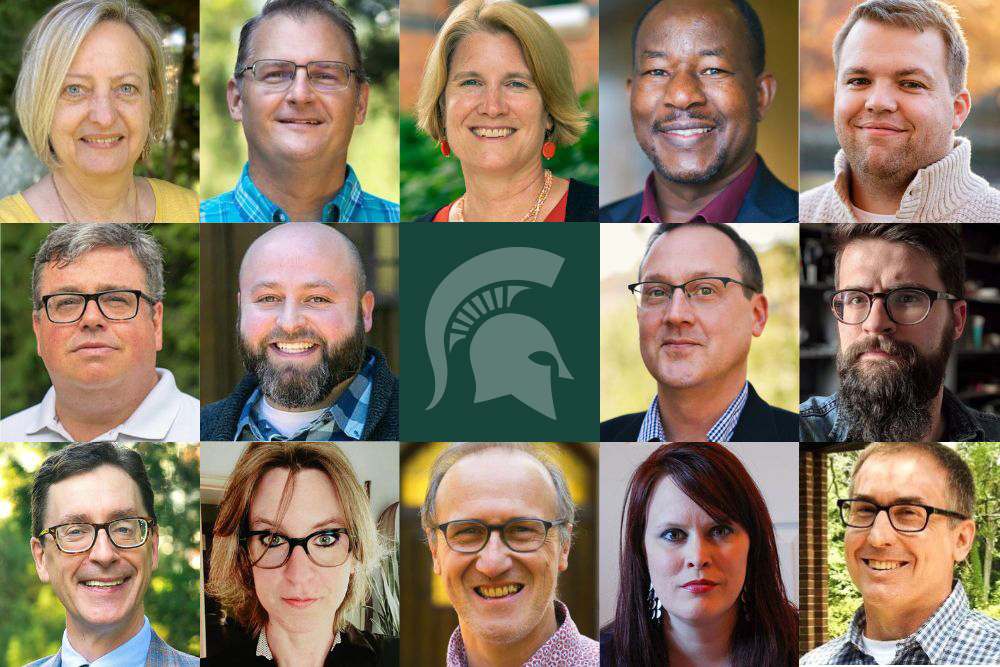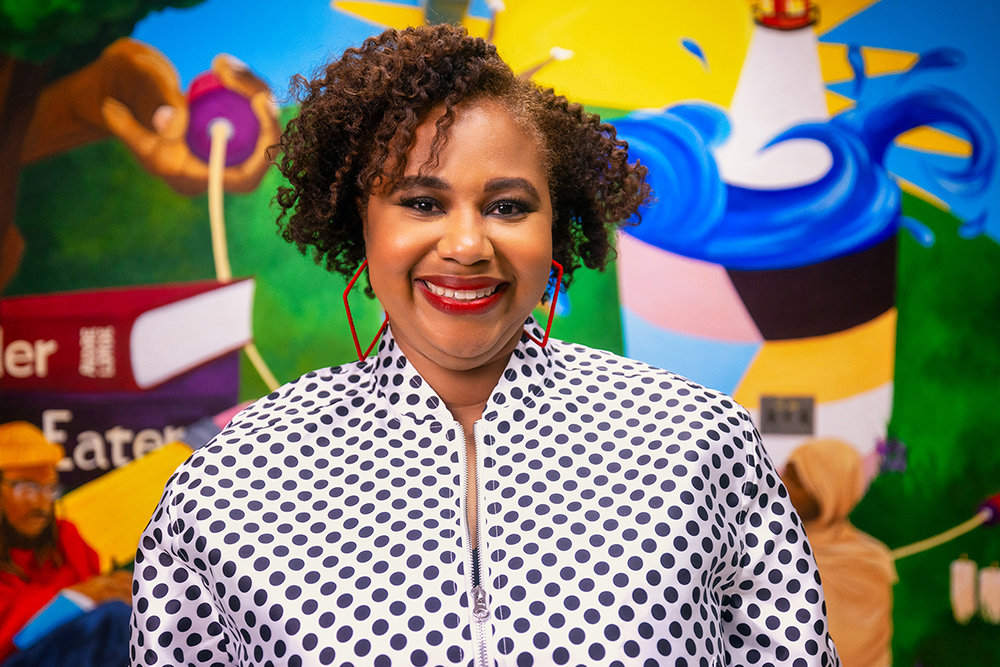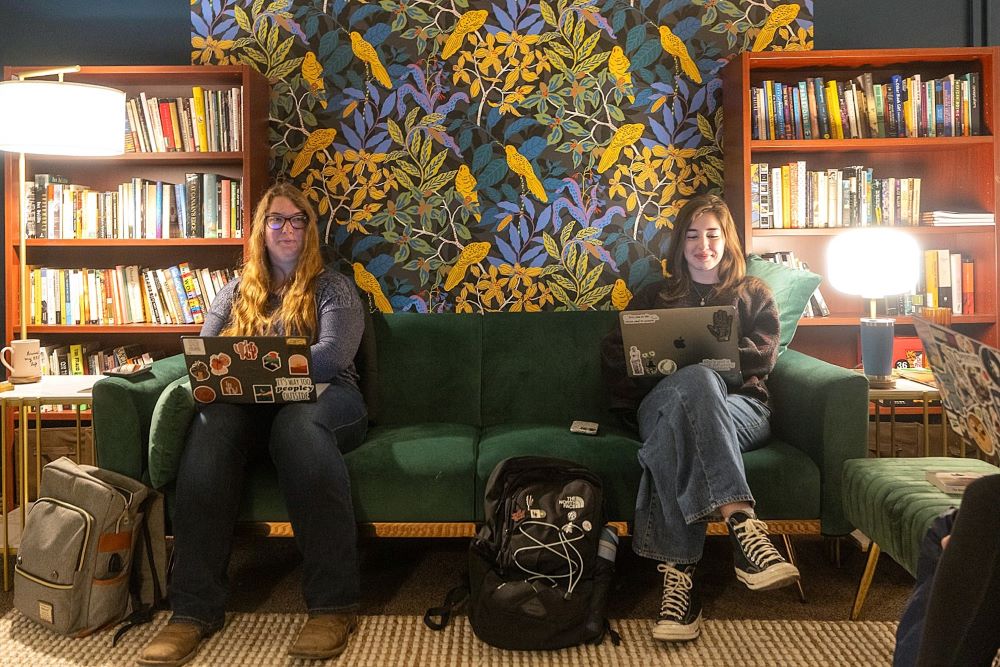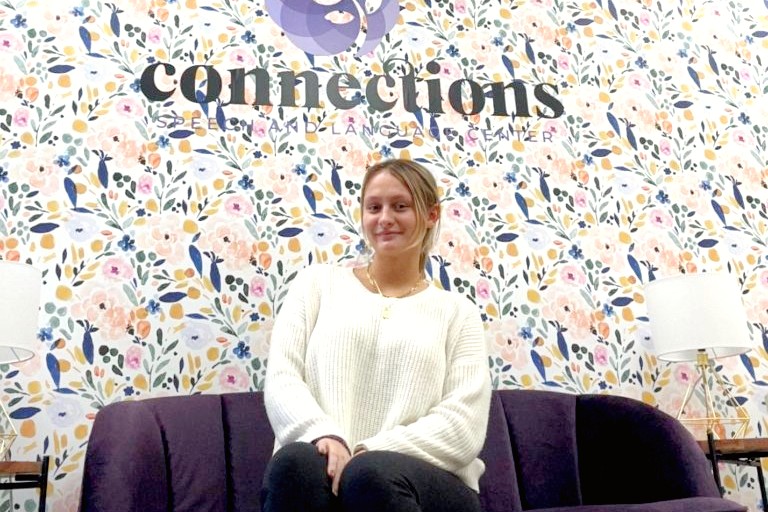Wellbeing
We commit to a culture of mutual support, wellbeing, and belonging for all in our college community.
"Life is to be lived, not controlled; and humanity is won by continuing to play in face of certain defeat."
Ralph Ellison
While the College of Arts & Letters surely doesn’t think defeat is certain, we agree with Ellison about the urgency of remembering to play — to find joy in life and in living, and to find our own individual paths toward wellness and a life that’s filled with meaning.
Our commitment to wellbeing is, importantly, not a mandate about health or control. Instead, it is a promise to foster a community wherein individual experiences of wellness, of living, are welcomed and supported. Building on our goals for diversity, equity, inclusion, and disability justice, our Wellbeing theme area challenges us to identify which parts of college life need more life and, perhaps, less control.
The College of Arts & Letters will cultivate more opportunities for connection, for listening, for creativity, and for simply “living” together. These opportunities will span the undergraduate and graduate students experiences as well as faculty and staff experiences — they will include changes to policies and practices that can better foster accessibility/accommodations; they will include revision and re-imagining of our current support structures.
Our hope is to continually cultivate an environment where a person brings their whole self to their time in the College of Arts & Letters, and finds the wellbeing of that self to be valued and celebrated.
Objectives
Advocate for our faculty, staff, and students
through developing pathways to promotion, retention, and personal fulfillment.
Integrate emotional health and mutual respect into the CAL experience
through cultivating reciprocal practices and policies that put people first.
Encourage faculty, staff, and students to pursue their goals
through supporting their transitions both within and beyond CAL.
Foster dialogue and a culture of care
through communications processes that engage the sciences of wellbeing and belonging.
Cultivate opportunities for reflection and creativity
through valuation of community, flexibility, and agency in staff practices.
Create pathways and maps toward career development and intellectual leadership
through re-envisioning mentorship and review practices.
Spotlight Stories

College Receives National Award for Innovative Policies and Programs Supporting Non-Tenure-Track Faculty
To learn more about CAL 2030’s investment in Wellbeing, including our assessment metrics, you can visit the full text PDF or plain text version of the plan.
We foster a culture of mutual support, wellbeing, and belonging for all in our college community.
“Life is to be lived, not controlled; and humanity is won by continuing to play in face of certain defeat.”
Ralph Ellison
While the College of Arts & Letters surely doesn’t think defeat is certain, we agree with Ellison about the urgency of remembering to play — to find joy in life and in living, and to find our own individual paths toward wellness and a life that’s filled with meaning.
Our commitment to wellbeing is, importantly, not a mandate about health or control. Instead, it is a promise to foster a community wherein individual experiences of wellness, of living, are welcomed and supported. Building on our goals for diversity, equity, inclusion, and disability justice, our Wellbeing theme area challenges us to identify which parts of college life need more life and, perhaps, less control.
The College of Arts & Letters will cultivate more opportunities for connection, for listening, for creativity, and for simply “living” together. These opportunities will span the undergraduate and graduate students experiences as well as faculty and staff experiences — they will include changes to policies and practices that can better foster accessibility/accommodations; they will include revision and re-imagining of our current support structures.
Our hope is to continually cultivate an environment where a person brings their whole self to their time in the College of Arts & Letters, and finds the wellbeing of that self to be valued and celebrated.
Objectives:
Advocate for our faculty, staff, and students
through developing pathways to promotion, retention, and personal fulfillment.
Integrate emotional health and mutual respect into the CAL experience
through cultivating reciprocal practices and policies that put people first.
Encourage faculty, staff, and students to pursue their goals
through supporting their transitions both within and beyond CAL.
Foster dialogue and a culture of care
through communications processes that engage the sciences of wellbeing and belonging.
Cultivate opportunities for reflection and creativity
through valuation of community, flexibility, and agency in staff practices.
Create pathways and maps toward career development and intellectual leadership
through re-envisioning mentorship and review practices.
To learn more about CAL 2030’s investment in Wellbeing, including our assessment metrics, visit the full text PDF or plain text version of the plan. Need links


